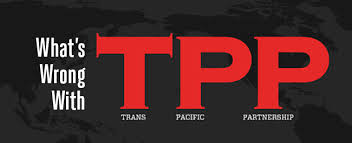Earlier this year, former Florida governor Jeb Bush travelled to my hometown of Detroit to explain his political philosophy. In a speech before local business leaders, Bush argued that the aim of government should be to promote “economic growth above all.”
“If a law or a rule doesn’t contribute to growth,” he asked, “why do it?” If a law subtracts from growth, why are we discussing it?”
The younger Bush brother is in good company. For the better part of a century, economic growth—as measured by the Gross Domestic Product (GDP)—has been the single most important guidepost for government decision-making. Nowhere is this clearer than in the current debate raging in Washington over the 12-nation Trans-Pacific Partnership (TPP) trade agreement, wherein the deal’s proponents from the Chamber of Commerce to the Treasury Department routinely reach for their trump card: “Trade is good for economic growth.”

